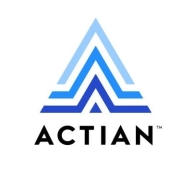

Teradata and Actian Ingres compete in the database management domain. Teradata is favored for its pricing and support aspects, while Actian Ingres offers a feature-rich experience perceived as worth the investment.
Features: Teradata focuses on scalability and robust analytic capabilities, supporting massive data volumes efficiently. Its features are tailored to larger enterprise needs. Actian Ingres is recognized for flexible deployment options and comprehensive data integration tools, making it suitable for varied environments. Its features are centered around flexibility and integration.
Ease of Deployment and Customer Service: Teradata provides a streamlined deployment process, targeting enterprises requiring extensive support. Its structured approach benefits larger setups needing detailed assistance. Actian Ingres appeals to adaptable environments where flexibility and quick deployment are prioritized, offering versatile deployment models for different infrastructure demands.
Pricing and ROI: Teradata involves a higher initial setup cost but delivers substantial ROI through extensive analytic capabilities. It is valuable for long-term projects with significant resource allocation. Actian Ingres offers cost-efficient setups, providing quicker returns for businesses with specific budgeting needs, appealing to entities seeking faster returns and lower upfront expenses.

Actian’s Ingres is a leading, enterprise-grade database management system designed to reduce IT costs and time-to-value, while delivering the strength and features expected from an enterprise-class database. Ingres 10.2 is the latest version of the database, containing enhancements that will make it easier to internationalize customer applications. Along with improved performance and reduced configuration overhead, users can take their first steps into big data analytics with the new Window functions.
Teradata is a scalable data analytics platform designed to meet enterprise demands for large-scale data management and processing, focusing on performance, scalability, and security for complex query executions.
As a leading data warehousing solution, Teradata integrates advanced analytics enabling organizations to derive insights from massive datasets. It supports high-volume data workloads with its architecture optimized for analytical queries. Users benefit from its robust scalability, allowing seamless expansion as data grows. Teradata's SQL engine is compatible with a wide range of data types, ensuring flexibility in data analysis. With advanced security measures, it protects sensitive data across various environments, providing peace of mind to users handling critical information.
What are the most important features of Teradata?Teradata is widely used in industries like finance, telecommunications, and healthcare, where data-driven decisions are critical. Companies leverage its robust analytics capabilities to enhance customer experiences, streamline operations, and ensure compliance with regulatory requirements. In these sectors, quick access to data insights can significantly impact competitive advantage.
We monitor all Data Warehouse reviews to prevent fraudulent reviews and keep review quality high. We do not post reviews by company employees or direct competitors. We validate each review for authenticity via cross-reference with LinkedIn, and personal follow-up with the reviewer when necessary.